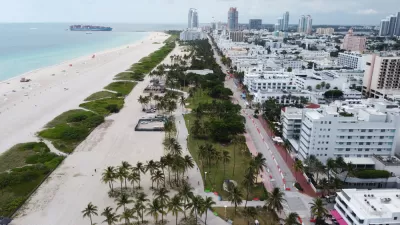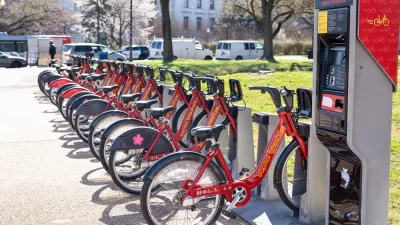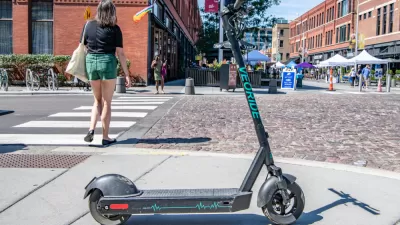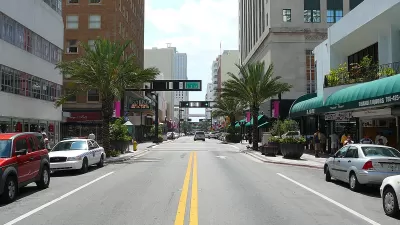After abruptly ending its shared e-scooter program last month, Miami is letting the devices return to its streets–with some new rules.

After ending its micromobility program on November 18, the Miami City Commission will reinstate the city's e-scooter program––with added safety requirements, reports Jason Plautz.
Supporters have touted scooters as an effective way to beat traffic in one of the country's most congested cities. However, their presence has long been controversial. Miami officials have pulled them several times even while managing the pilot, including during the COVID-19 pandemic and for a brief period in early 2021 over clutter concerns.
The city allowed scooter operators to return their devices to the street until at least after the holiday season, when the Commission will revisit the pilot program and potentially revise its regulations. While some commissioners view the scooters as a nuisance and sidewalk clutter, others believe the devices provide an important transportation option and a lucrative source of funding for protected bike lanes and other infrastructure. Others support the devices but want to see broader distribution to more neighborhoods, not just downtown areas popular with tourists.
The new rules require riders to wear helmets and reduce the number of scooters allowed per block. In the future, the city may institute speed regulations and shorter operating hours, according to Plautz. Earlier this year, Bird introduced 'Community Safety Zones,' high-activity areas where the devices automatically slow down, to improve safety and reduce the chance of scooter-pedestrian crashes.
FULL STORY: Miami set to temporarily restore scooters after ending pilot program

Alabama: Trump Terminates Settlements for Black Communities Harmed By Raw Sewage
Trump deemed the landmark civil rights agreement “illegal DEI and environmental justice policy.”

Study: Maui’s Plan to Convert Vacation Rentals to Long-Term Housing Could Cause Nearly $1 Billion Economic Loss
The plan would reduce visitor accommodation by 25% resulting in 1,900 jobs lost.

Planetizen Federal Action Tracker
A weekly monitor of how Trump’s orders and actions are impacting planners and planning in America.

Waymo Gets Permission to Map SF’s Market Street
If allowed to operate on the traffic-restricted street, Waymo’s autonomous taxis would have a leg up over ride-hailing competitors — and counter the city’s efforts to grow bike and pedestrian on the thoroughfare.

Parklet Symposium Highlights the Success of Shared Spaces
Parklets got a boost during the Covid-19 pandemic, when the concept was translated to outdoor dining programs that offered restaurants a lifeline during the shutdown.

Federal Homelessness Agency Places Entire Staff on Leave
The U.S. Interagency Council on Homelessness is the only federal agency dedicated to preventing and ending homelessness.
Urban Design for Planners 1: Software Tools
This six-course series explores essential urban design concepts using open source software and equips planners with the tools they need to participate fully in the urban design process.
Planning for Universal Design
Learn the tools for implementing Universal Design in planning regulations.
Caltrans
Smith Gee Studio
Institute for Housing and Urban Development Studies (IHS)
City of Grandview
Harvard GSD Executive Education
Toledo-Lucas County Plan Commissions
Salt Lake City
NYU Wagner Graduate School of Public Service





























